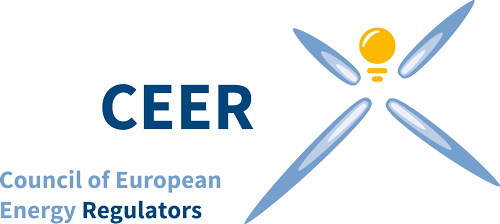December 2009
| | |
| European Energy Regulators’ News | |
| Issue: December 2009 | |
| If this e-mail is not displayed correctly, please click here! | |
|
| Editorial |
| Smart Grids and Smart Regulation help meet climate change goals | |
| Role of Smart Grids and Climate Change Electrical cars, smarter consumption and storage Regulators have stepped up to the smart grids/climate challenges at EU level (through CEER/ERGEG) e.g. working with EU standards bodies to enable interoperability of smart utility meters, and through various public consultations, reports, FactSheets and workshops. See the Smart Grids FactSheet for a simple explanation of what smart grids are (and are not); how they relate to smart metering; and how (when combined with smart regulation) they can help meet the EU’s climate change objectives (including examples). ERGEG’s new public consultation on Smart Grids explores the drivers and opportunities for ‘smarter’ networks from the users’ perspective and discusses the regulatory challenges and priorities of smart grids. At the ERGEG workshop on smart metering (14th December) discussion focused on: |
| CEER/ERGEG Publications |
| Publications: • National Reports FactSheet • Smart Grids and smart energy regulation can help implement climate change objectives, December 2009 (FS-09-03) Events (see Events section of website) : • Smart Metering workshop, Brussels, 14 December 2009 • Official Side Event at COP-15 on Smart Grids, Copenhagen, 9 December 2009 |
|
The standard period for ERGEG public consultation is 8 weeks. See the public consultations section of the website.
| Events |
| See all dates of Regional Initiatives meetings (RCC, IG, SG) on the ERGEG online Calendar. |
| Regional Initiatives Update |
|
|
| In the Baltic electricity region a Congestion Management Implementation Group has been established and market based congestion management rules are expected by 2011. This will mean harmonised congestion management and capacity allocation methods between the Baltic countries including a common method towards Russian and Belorussian TSOs. For the Gas Regional Initiative, the North-West gas region work continued on improving the regional investment climate. Preliminary conclusions of the Virtual Test Case on Investment (of a simulation of a regional gas pipeline from Germany via the Netherlands and Belgium to France of a size up to 20 bc) have been discussed at a workshop in September and the Investment Manual has been finalized. The project will also draft a policy advice on how to improve regional investment climate in light of the 3rd Package. |
| International Activities |
| CEER held an official side event (9 Dec.) at the United Nation’s Climate Change Conference (COP-15) in Copenhagen to raise awareness of the importance of Smart Grids (and smart regulation) as tools in meeting climate change goals and to raise the profile of the new International Confederation of Energy Regulators (ICER). |
| About the European Energy Regulators' News |
| Reported content is given for information purposes only and does not legally bind any of the involved parties. Where third-party sources are mentioned, CEER/ERGEG is not responsible for the accuracy of the information. Your feedback on European Energy Regulators’ News is welcome, so as to improve future issues. Contact: una.shortall@ceer.eu |
